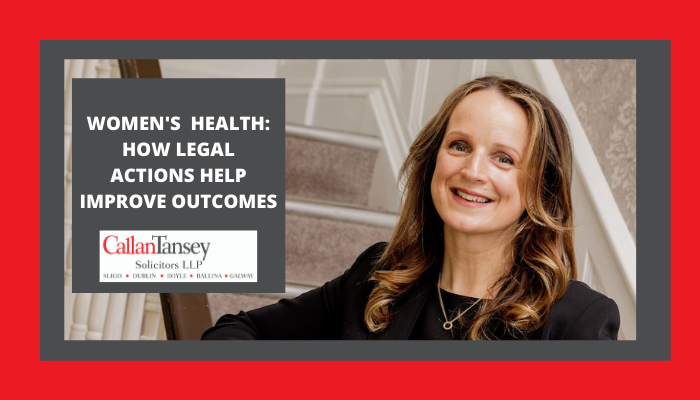The current system of addressing Medical Negligence cases in Ireland does not serve the interests of patients, healthcare professionals or the State. This is particularly so in cases specifically related to Women’s Health. Emma Mhic Mathuna, Ruth Morrissey, Vicky Phelan and Brid McCole, Savita Halappanavar, Dahra Kivlehan and Sally Rowlette have become household names, all for reasons none of them would ever have wanted.
Clinical Negligence cases relating to Maternity care in Ireland make up more than 50% of payouts made by the State. Yet, Maternity Services account for only 3% of the HSE Budget. There is a strong argument that the State and in particular its women would be better served by increased investment in Maternity services, which in turn could lead to a reduction in birth and obstetric injuries and resultant claims.
Women are often embarrassed to discuss the injuries they receive during childbirth. They can suffer daily pain and loss of dignity following vaginal and perineal tears and other injuries incurred during delivery. Many are physically and emotional vulnerable following childbirth and feel their concerns are not heard when they voice them.
Failures in women’s healthcare also extend beyond Maternity and Obstetric services. For many years we have also witnessed the systemic failures of Cervical Cancer and Breast Cancer Screening Services, as well as the Hepatitis C scandal. Yet today women continue to fight to have their voices heard by the State and the healthcare services, to have their questions answered and their suffering recognised.
It is important to remember that not every adverse outcome is due to negligence. In the vast majority of cases harm is caused by systems failures or unintentional human error. A fear of litigation is a key barrier to open communication between medical professionals and their patients when there has been a negative outcome. Patients and their families are entitled to honest communication, complete information and above all empathy and respect. When there is an adverse outcome the primary objective of our healthcare system should be appropriate clinical care of the patient.
Central to this care should be to avoid subjecting patients to a lengthy, traumatic medical negligence process as they seek answers or adequate funding for care.
As a mother of four children I have supported women from across the country in their pursuit of justice in both a sensitive and professional manner. The women I meet consult a solicitor as a last resort. They do not relish the intimate details of their case, and resultant impact on their lives being aired in open court. In fact for many the less adversarial, and more confidential mediation process, is a much gentler way to resolve their case. However they deserve answers, they deserve funding for continued care, and we deserve a health service that learns from its mistakes.
If you have any queries related to this article please contact Niamh NiMhurchu, Joint Managing Partner at Callan Tansey Solicitors LLP at nnm@callantansey.ie or on 071- 9162032.

